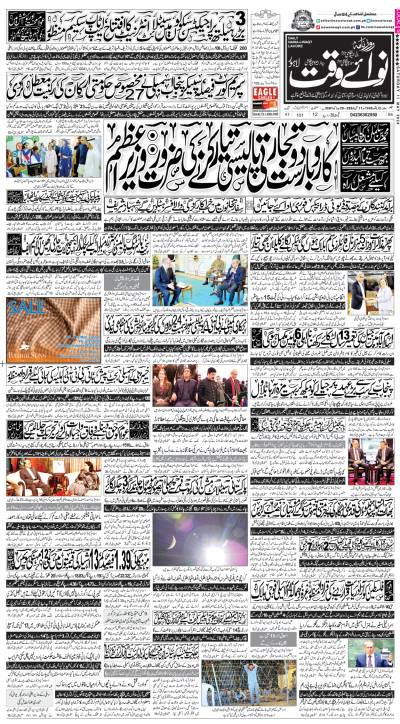QAISER MAQSOOD - The rise of connected devices has morphed into a powerful catalyst for transformation across multiple industries, as the interest in the Internet of Things (IoT) continues to increase. Industries around the world are looking to transform their customer experience, make their services stand out and optimize their asset utilization in everyday operations.
When it comes to successful IoT implementation, telecom operators play a fundamental role. With advances in mobile broadband technologies, particularly the greater availability of higher bandwidth mobile data services, is serving as a major catalyst for adoption of IoT solutions. They are the driving force behind the IoT revolution reflected in the number of horizontal and vertical business partnerships that have been established in recent years. External factors, such as the pandemic, are driving the need for digital transformation in Pakistan which is requiring businesses to transform the way they efficiently manage their operations through IoT devices.
The pandemic has made it very clear that a lot of human interaction can be avoided and replaced by smart solutions. Examples of that are smart meters for electricity, gas or water as well as smart healthcare where a patient’s status can be monitored remotely, where patients can avoid hospitals unless absolutely necessary.
“As Pakistan becomes even more digitalised, IoT platforms are set to become a mainstay in the country. This will not only overcome gaps in pandemic management, but also reduce general healthcare costs, ensure timely deliveries and affordability in logistics, and help urban areas become smart cities,” said Seth Ryding, Chief Sales Officer at Telenor Connexion. Telenor Connexion works with Telenor Pakistan on IoT ecosystems and has guided businesses around the world in adopting managed connectivity and cloud-based services.
Brazil is utilising IoT in the development of a smart city project that features smart solutions ranging from health and education to security and tourism. South Africa provides an exemplary undertaking in the form of their own smart city project that is designed to create 200,000 jobs for the local community. Similar projects are finding popularity around the world with connectivity solutions at the center of their core.
Pakistan’s telecommunication industry is also keeping pace with global trends and recalibrating itself to the world of IoT. According to GSMA, Pakistan is currently home to approximately 800,000 IoT connected devices and is expected to grow to 3.8 billion devices by 2025. Telenor Group has been active in the IoT space since the 1990’s, and now through its subsidiary ‘Telenor Connexion’, it has brought its expertise and industry knowledge to Pakistan.
Telenor Pakistan and Telenor Connexion are now working together to scale the country’s IoT ecosystem while enabling businesses of all sizes to future-proof their operations. With Connexion’s Managed IoT Cloud (MIC) on board, Telenor Pakistan is now leading the country in its journey deeper into the world of cutting-edge, scalable, and secure IoT.
Telenor Pakistan’s Chief Business Officer, Omer Bin Tariq stated, “Our aim is to continue strengthening the IoT network for businesses in Pakistan while also exploring new business models based on sensor data and analytics. IoT is an ecosystem play and the real power of IoT business rests in exploring partnerships to create maximum value for all key players in the greater value chain. Our strong collaboration with Telenor Connexion, clubbed with our past experience and continued interest in the IoT sphere allows us to bring Pakistan at an equal footing globally in the IoT arena. This leading position enables our IoT clients and partners in the country as we take on new and exciting challenges in a market that is still fresh for IoT.”
Some of Telenor Pakistan’s IoT solutions include state-of-the-art fleet management, Next-Generation mobile video surveillance, asset management and monitoring, end-to-end cold chain management, Genset, and water management. IoT also holds immense potential in terms of tracking, temperature monitoring, and contact tracing during Covid-19.
According to GSMA’s report, ‘Pakistan: progressing towards a fully-fledged digital economy ’, Pakistan will follow the earlier mentioned examples of Brazil and South Africa in cellular IoT connectivity, ushering in novel smart city solutions across the country. Operators like Telenor Pakistan are already laying the foundations for this promise of a well-connected future. In addition to the liaison between Telenor Pakistan and Telenor Connexion, the former has already launched the country’s first narrowband IoT network site two years ago.
As Pakistan’s connectivity infrastructure leads the country’s next industrial revolution, IoT presents the opportunity to gain its benefits across a variety of sectors. The same report by GSMA also foresees a positive effect on the entire Asia Pacific economy, amounting to 0.34% of the region’s GDP in 2025.
In possession of around 20 years of experience around the world in connecting industry leaders, Telenor Connexion caters to verticals as diverse as automotive, transportation, security, and manufacturing and production to name a few. Connexion’s interest in Pakistan is destined to result in productivity gains and cost saving while generating new possible revenue streams for forward-thinking businesses. Pakistan’s IoT ecosystem thrives and an ease in the regulatory environment will lead to a Digital Pakistan that is full of hope and promise.
— The writer is a freelance writer who can be reached at maqsood.qaiser@gmail.com.





